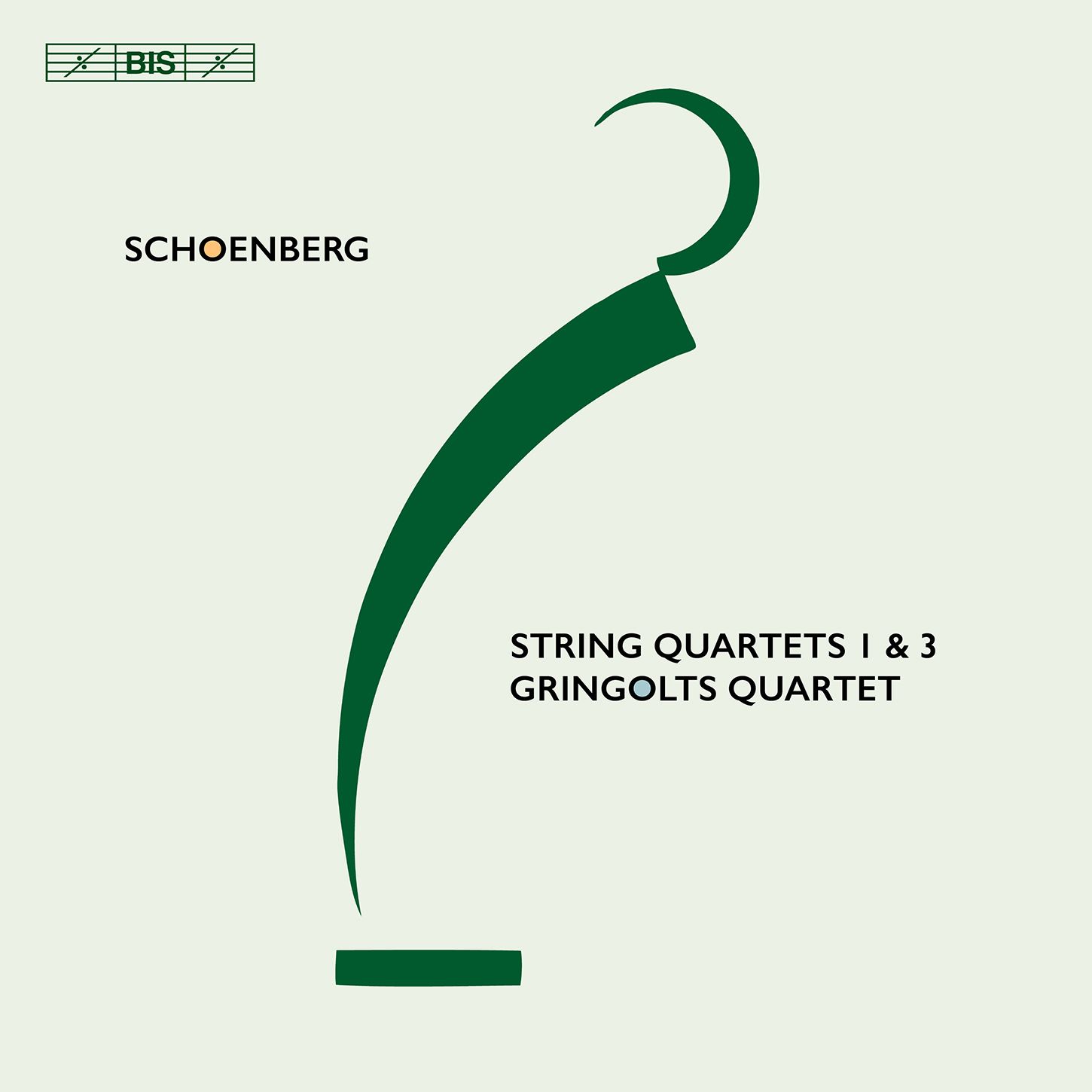Gramophone Awards Shortlist: Schoenberg String Quartets 1 & 3 (Gringolts Quartet)

It's the Gramophone Awards shortlist time again, and again Classical Explorer has covered a goodly amount of them. Here's pone I hope wins: Schoenberg on BIS:
Arnold Schoenberg’s second string quartet – included on a previous release by the Gringolts Quartet – is often used as a reference point when the emergence of atonality is discussed. That work, where Schoenberg in the fourth movement suddenly does away with a time signature, was composed in 1907, three years after his first work in the genre: the String Quartet in D minor, Op. 7, a work which still has much in common with the Late Romantic idiom of Richard Strauss. The D minor quartet is in one movement, but with four distinct sections which, according to a note left by the composer, chart a progression from ‘rebellion’ and ‘depression’ to ‘quiet joy and the contemplation of rest and harmony’ – a program reminiscent of the one Strauss had used in his recent tone poem Ein Heldenleben. Albeit tonal, the harmonic language is richly chromatic, pointing forward to the inevitable break in the second quartet. Some twenty years later, Schoenberg had developed his twelve-tone method, and his Third Quartet is an example of how he was using this to refresh traditional form schemes and contrapuntal textures, while at the same time counterbalancing the modern idiom with familiar features such as a slow variation movement and a rondo finale.
The First Quartet's programme only came to light in 1986, and traces an arc from 'rebellion' and 'depression' to 'quiet joy and the contempolation of rest and harmoniy'
The first movement is often referred to as late or post-Romantic. Perhaps it is a sort of post-post-Romantic:
There is certainly a sense of angst to the Scherzo. The Gringolts Quartet are superb at this movement, projecting its angularity with the utmost energy;
The slow movement is the highlight of the piece. The booklet note annotator is right that there is an atmospheric equivalence here with Verklärte Nacht; the Gringolts Quartet projects a lovely sense of peace in this movement:
It is the final movement of the First Quartet that takes us towards that calm sense of fulfilment, and the way Schoenberg leads the listener towards this is masterly close. The Gringolts Quartet is as expert at building climaxes as it is creating sudden contrasts.
The Third Quartet is a far knottier work, twelve-tone in its construction. But lots is immediately audible: try listening to the first movement and concentrating on the ever-changing relationship between the oong, legato lines and the fast-moving music:
The Adagio second movemem also works with contrasts of lyric and active. The booklet notes refer to this as “airborne” until the stable cadence at the end, and the Gringolts Quartet achieve this sense of elevation in terms of great beauty. Their appreciation of the significance and sheer gorgeousness of Schoenbergian melody is surely unparallelled. Listen to those distinctions between lyrical/staccato modes of utterance, too:
Perviously, the term “Intermezzo” tended to mean a light interlude; and that is how the third movement begins, before moving into markedly more dramatic territory:
There are luxury casing for the booklet notes: Professor Arnold Whittall. His way of describing the path to the close of the finale Rondo is characteristically pithy and absolutely exact:
Indeed, it seems to be the promary task of both Intermezzo and Rondo to advocate a less lyrical, more overtly concentrated motivic texture. Ultimately, however, the music's edge sense of drama is allowed to relax and unwind as the thematic argument runs its course, and a trly post-tonal sense of closure, satisfying yet in some ways provisional, makes its presence felt.
Here’s that Rondo, marked “Molto moderato”:
At just a touch under 80 minutes, this is a fine value disc. The recording (SRF Studio, Zürich) is brilliant, both in sonic positioning and in utter crystal clarity - a clarity that Schoenber's music thrives in.
The Gringolts String Quartet was founded in 2008, Its four members represent four countries: Russia, Romania, Armenia and Germany. They are based in Zürich. Ilya Gringolts, the leader plauys on the “ex-Prové” Stravidavius (Cremona, 1719).
